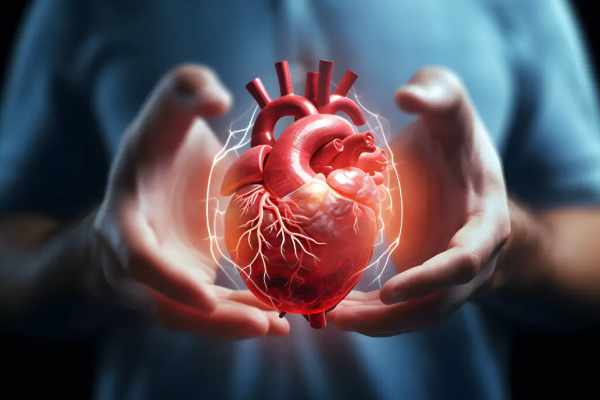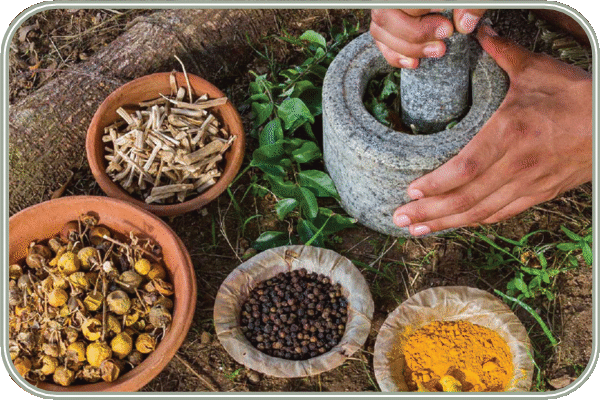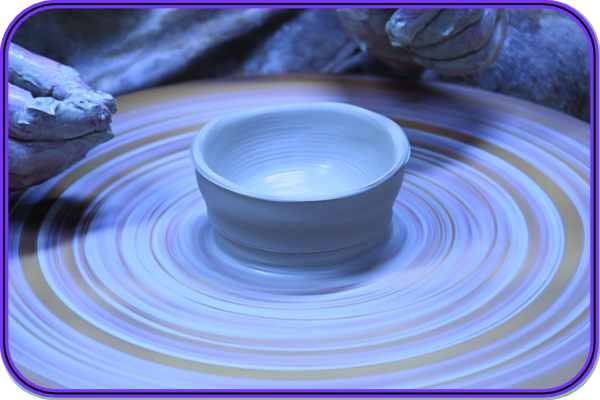The origins of overweight according to TCM
According to Taoism—the science of life and philosophy underlying Chinese medicine—there is no difference between being overweight or underweight. Both reflect an imbalance. Each human being has their own ideal weight, relative to their height, body shape, and other factors. Above or below this weight, there is an imbalance.
But it is entirely possible to live in this modern society, to enjoy the benefits it provides without excess, if we know the causes of weight disorders and how to reverse them.
1. Self-poisoning
An acid-base (PH) imbalance in food can cause food to rot in the stomach before the body has even had a chance to digest and absorb its nutrients. This is a boon to harmful organisms, which will have feasted on it before we have nourished our cells. They will leave us with nothing but waste.
We understand what happened by smelling our bad breath, observing belching, flatulence, or stomach pains.
The result: our cells are not sufficiently nourished and lose their vitality. Furthermore, toxic residues cannot be eliminated and they poison the cells. A devitalized body seeks rest (no movement). We seek energy by eating again and again to compensate for the lack of life (QI or quantum information) in the food bolus.
2. Water Retention
The kidneys are the filters that separate residual water from the blood. The amount of water filtered therefore depends on the functioning of our kidneys. Normal kidneys can filter approximately one and a half liters of fluid per 24 hours. The kidneys’ filtering potential is proportional to their capacity.
Exceeding this average dose will force the body to eliminate it through sweating… if we exercise enough. Otherwise, water will be retained in the body’s tissues.
The tissues in an area swell to accommodate the new intake, and only a tiny fraction of the water will be eliminated through perspiration. The “stagnant” water remains and receives even more waste. This residual water, similar to urine, can stagnate for a very long time, gradually transforming into mucus. This mucus, or more solid residual water, suggests excess fat. This gelatin continues to harden and becomes cellulite.
However, cellulite cannot be eliminated through exercise. The only way to do so is to:
- drink less, limiting daily intake to less than one and a half liters,
- manage cellulite deposits, preferably in a sauna or steam bath to dilate pores and encourage sweating,
- perform intensive heating massages to break up the deposits.
Please note: the daily intake (1.5 liters) includes the water contained in all the food eaten during the day.
If the body has cellulite, it is certain that the kidneys are not functioning properly. Cellulite can be identified by examining the areas around the buttocks, thighs, stomach, and upper arms.
Eating only salads, soups, and drinking fruit juices can be a deception in the quest for weight loss if our kidneys cannot properly filter all the water intake.
3. Fat Accumulation
Fats are related to liver, biliary, and pancreatic functions. Poisons and toxins that are present in solid form in our body need to be lubricated by fats to be eliminated.
An excessive amount of fat or fat that is difficult to break down will bind to the liver tissue, partially blocking the normal functioning of the liver. This partial blockage prevents more waste from being filtered and eliminated. As a result, the blood flow that supplies our brain poisons its cells, leading to disorders we call nervous and mental disorders, which are just some of the many harmful effects of poor liver function.
Fat can also accumulate in other parts of the body that receive less exercise, such as the abdomen and hips. When this happens, breathing becomes more labored, and can become shallow and rapid. This also affects the heart, causing palpitations (rapid and irregular heartbeats) and even fibrillation (uneven contraction of the heart).
All of these problems are caused by fat accumulation. Since we need fat in our diet, what type of fat should we eat?
Vegetable oils only (sesame oil is number 1)
4. Guilt-related nervousness
People lacking energy sits down to think about things they need to do. Of course, they don’t do them. Then they feel guilty for not having done what they thought they wanted to do; they then become more nervous, and reduce their physical activity, and eat to forget their frustration-related guilt.
Vicious circle of excessive weight gain. The more they feel bad, the more they eat and the harder it is to do anything. And they feel so even worse.
5. Sexual dissatisfaction
A woman who is not sexually satisfied becomes nervous. But what does man do in this area then? It is his responsibility to accompany him on this “interplanetary” journey until they return home.
- He arouses his emotions so his sexual desire and ignites their spaceship
- Then prepare the launch: it’s the pleasure
- And comes the launch, the journey into space. It’s orgasm
- Then the slow return to earth, the gentle crossing of the clouds that dissipate to settle together under the quilt. It’s the moment of shared tenderness.
But in reality most men only tell their partner about the second stage. The woman stuck halfway between the earth and the sky can not reach the last two stages even by masturbation. She falls asleep then unsatisfied and frustrated or nervous.
6. Excessive eating and drinking
For many people this is bad eating habits. Social conditioning or even neurotic manifestations. It is treated in session of deprogramming of the behaviors and by the acupuncture.
7. Physiological dysfunctions
In Chinese medicine, before attempting anything to lose weight, we first treat disorders related to energy imbalances.
8. Side effects of medications
Obesity can be a side effect of some medications. Acidic drugs cause a feeling of hunger. So increase of food. Medications like cortisone ravage the kidneys and other organs. If the kidneys are idling, there is usually water retention again; the process of gaining weight is again engaged.
.
The impact of being overweight on health

Being overweight can have many repercussions on overall health.
Every inch of excess fat forces the body to create a network of extra blood vessels to feed that tissue, forcing the heart to work harder. When the heart is overworked, it loses its flexibility. As it deteriorates, it becomes more susceptible to germs, viruses, bacteria and other organisms that can attack it.
When a heart attack occurs, it causes the death of an area of heart tissue that can not not work anymore. A second attack will damage another area of the heart. This increases the effort to be made by the still healthy parts of the organ, which must work harder to maintain the activity of the circulatory system.
Fortunately, Chinese medicine can regenerate these dead cells. Gallstones are another consequence of obesity. Composed of hard and dry fat, they are very difficult to dissolve. A fragile pancreas, weakened by obesity, often leads to hypoglycemia or diabetes.







0 Comments